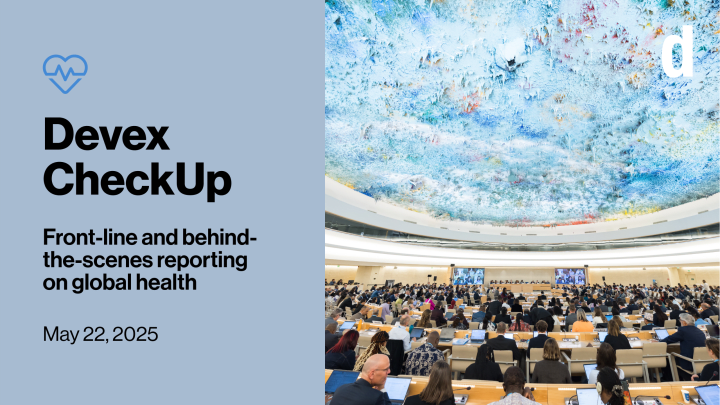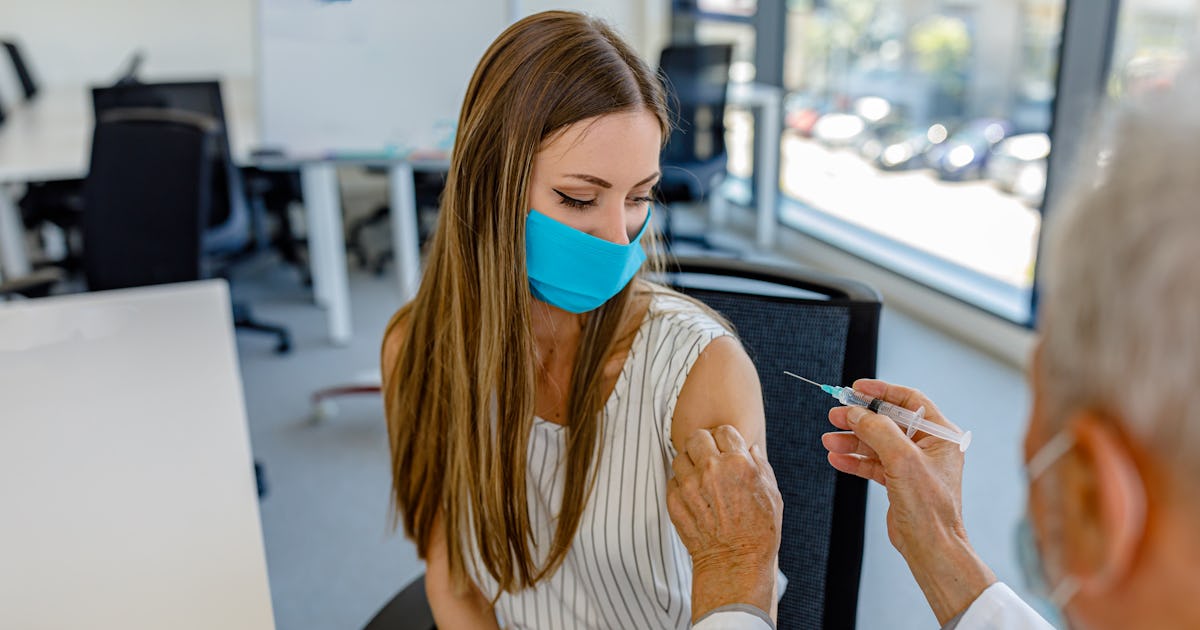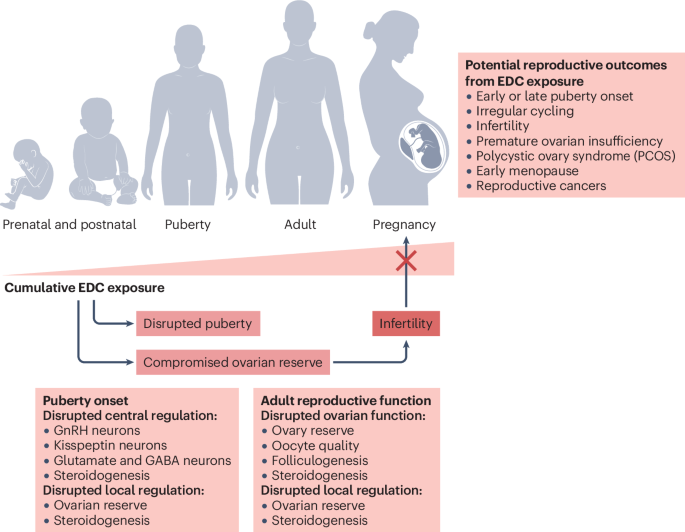Presented by

If you’re in Geneva, two things are likely happening. You’re exhausted from running around trying to get to your next side event, or stuck somewhere because of the rain.
My colleagues tell me it’s been raining on and off since Tuesday, casting a gray shadow around the city, .
Ministers, health experts, and advocates from around the world are in Geneva this week for the 78th World Health Assembly. Many of them are grappling with . At the Palais des Nations, signs in the halls remind people of the “liquidity crisis” the United Nations has been facing for years, but that has become more acute in recent months, my colleague Sara Jerving tells me.
The World Health Organization itself is , including limiting evening sessions as much as possible — although they seem to be failing at it, with some sessions extending into the night.
But the funding crunch has also given rise to some difficult conversations about the future of the global health sector. And the question we keep hearing this week in Geneva is
That came up during a panel at the Geneva Graduate Institute, where Björn Kümmel, deputy head of unit for global health at the German Federal Ministry of Health, talked about the need to discuss the mandates of some of the biggest health institutions in Geneva, including Gavi, the Global Fund, UNAIDS, and WHO. “Do we need all of them?” he asked.
Helen Clark, former prime minister of New Zealand and co-chair of the Independent Panel for Pandemic Preparedness and Response, hit the same notes in a conversation with Devex Senior Editor Rumbi Chakamba on Wednesday.
“We have a number of vertical silos and they’re all doing great work, believe me. But when the money is more scarce, I think it is time for the member states to have an adult conversation again as to whether [they] need as many organizations,” she said.
Africa CDC’s Dr. Ngashi Ngongo said it’s a very difficult question. But the current realities have also changed — in work traditionally done by global health institutions. , he said, especially those that appear to be doing the exact same thing, such as UNFPA and UN Women, which both work on women’s health.
Interested in these types of conversations? Today, you can watch my colleagues Sara Jerving, Rumbi Chakamba, and Andrew Green onstage at . The team will chat with Gates Foundation official Kieran Daly, Pandemic Fund head Priya Basu, and newly named WHO executive director for health emergencies program Chikwe Ihekweazu. Register to watch online.
: A look at the Pandemic Agreement
Speaking of WHO, the agency received a much-needed financial boost this week. Not only did member states approve an increase in their dues, but they also during its final investment round on Tuesday.
WHO Director-General Tedros Adhanom Ghebreyesus says the agency has now secured for the 2026-2027 biennium.
Tedros calls WHO’s budget “extremely modest” for an agency with a broad mandate that works in more than 150 countries. He notes that WHO’s annual base budget of $2.1 billion is , or the price of one stealth bomber.
But not everyone is convinced. Early in the week, a senior Thai official said WHO had become too “fat” and needs to become fit and lean again.
WHO secures 60% of base budget for the next two years
Thai official calls for WHO to be reborn as ‘small, lean’ institute
Donor funding cuts have wreaked havoc on WHO’s finances, . When the U.S. fully withdraws from WHO next year, the agency will have to rely on other countries, foundations, and multilateral organizations to continue its work. That includes Germany — which stepped up to help fill the gaps left by U.S. funding cuts back in 2020 — and the Gates Foundation, which has significantly supported WHO over the years.
Check out this funding analysis from my colleague Miguel Antonio Tamonan to learn about their donations — and those from WHO’s other top benefactors.
: Who’s funding the World Health Organization? (Pro)
Start your 15-day free trial now to access the piece as well as all our expert analyses, insider insights, funding data, and more. Check out all the exclusive content and events available to you.
Heads of state from French President Emmanuel Macron to Thai Prime Minister Paetongtarn Shinawatra welcomed the conclusion of the three-yearslong negotiations on the pandemic agreement this week, calling it “historic” and a reflection of “the strength of multilateralism in building a safer world.”
But . Dr. Ebere Okereke, an associate fellow with the global health program at Chatham House, wrote about her concerns with the agreement, from its lack of financial guarantees to firm commitments on technology transfer.
The agreement is also incomplete. Countries will have to engage in another set of negotiations to work out the details of the pathogen access and benefit sharing system, which, to many low- and middle-income countries, is a means such as vaccines and treatments during health emergencies.
“The adoption of the Pandemic Accord marks the beginning, not the end, of the equity debate,” according to Sangeeta Shashikant, program coordinator at Third World Network, who has closely followed and provided expert advice on the pandemic agreement negotiations.
Landmark pandemic treaty adopted despite pushback by some countries
Just before the opening of WHA, African health ministers held a special session in Geneva to nominate the next WHO regional director for Africa. Their choice: , a cardiologist and health policy expert from Tanzania.
His nomination follows that of Dr. Faustine Ndugulile, a fellow Tanzanian who was chosen for the role back in August but unexpectedly died in November.
Here’s a little background about Janabi:
• He’s currently the senior health adviser to Tanzanian President Samia Suluhu Hassan and was the head physician for a decade to former Tanzanian President Jakaya Kikwete.
• Apart from being an adviser to President Hassan, he is also the executive director of Tanzania’s top referral hospital.
• His priorities include reducing maternal and infant mortality and helping Africa’s health systems be climate resilient.
Tanzanian health expert is nominated to WHO's top Africa job
Just when I thought the United States would be completely absent from WHA this week, a video address from U.S. Secretary of Health and Human Services Robert F. Kennedy Jr. popped up on the screen during the plenary.
His message? He wants health ministers to
“We don’t have to suffer the limits of a moribund WHO. Let’s create new institutions or revisit existing institutions that are lean, efficient, transparent, and accountable,” he said, , including for its COVID-19 response.
No one responded to his remarks, except for a delegate from China who said the “United States should stop politicizing and instrumentalizing the pandemic.”
US still wants global health cooperation, but not through WHO
Nearly , up from 143 million in 2015, according to a Lancet commission report. [The Guardian]
A special court in Senegal has charged a former government minister . [Barron’s]
The U.S. FDA has approved a new blood test that could diagnose Alzheimer’s disease faster. [NPR]








